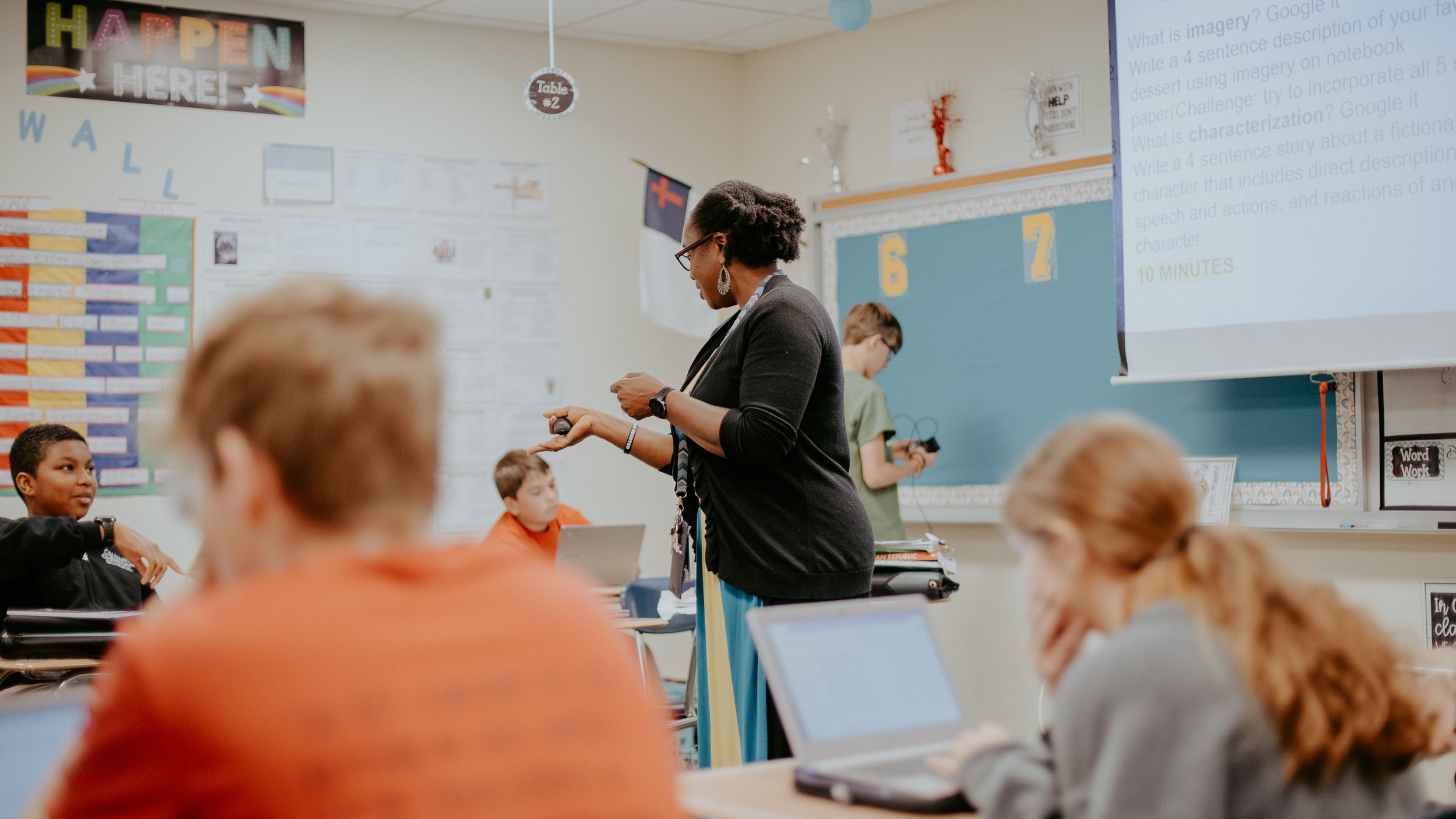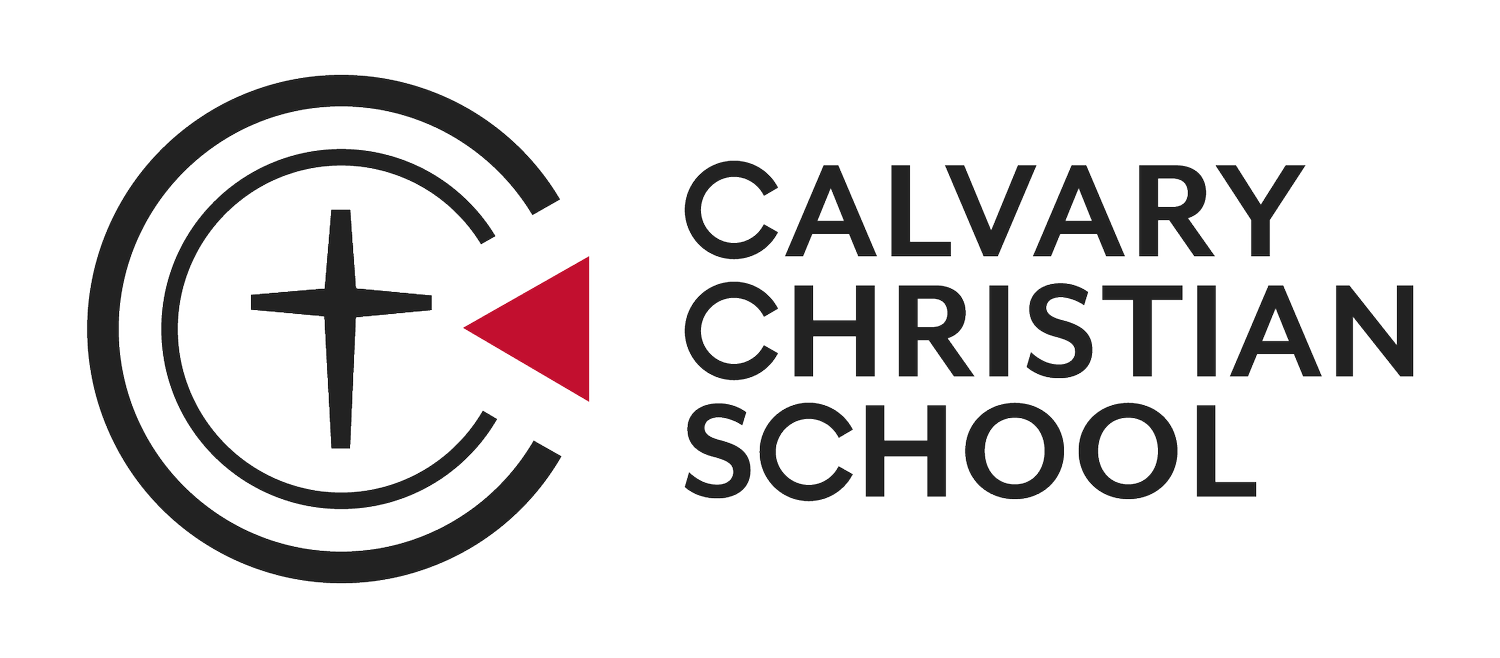Preschool
Calvary Christian Preschool strives to offer excellence in Bible stories, social skills, math, reading, writing, art, music, Spanish, sign language, and engaging activities. Enrolling your child at our private preschool in Naperville will establish a firm biblical and academic foundation from Abeka Curriculum.
Now welcoming children from:
6 weeks through 5 years!
Our infant to age five programs introduce a biblically-based Academic Curriculum to begin alphabet and number recognition. Energetic preschoolers remain busy with a full day of activities that include art, music, STEM, dramatic play, fine and gross motor development, and story time. Students who complete our Christian preschool program are well-prepared for Kindergarten.
Curriculum
-
Abeka preschool curriculum turns play time into learning time, laying a strong academic foundation that prepares each child for the next level of their educational journey.
-
Our entire private preschool program has been developed from a Christian worldview, planting seeds of faith in children all through the year.
-
Abeka is an age-appropriate curriculum for preschool that takes into consideration the differences in motor skills and cognitive abilities among preschoolers. With Abeka, they’ll experience early success at realistic learning milestones.
-
Any early childhood education program should recognize that preschoolers yearn for hands-on activities. The Abeka preschool curriculum fosters preschool learning with colorful, durable resources that invite lots of child involvement.
Age Groups & Their Teaching Objectives
Infants (6 weeks - 14 months)
-
Respond to sound and touch
Follow moving objects with eyes
Sucks and grasps objects
Moves first by rocking, twisting, pivoting
Crawls, scoots and/or walks
Can hold and bang objects
Learns to transfer things from one hand to the other hand
Develops awareness of own body
Develop small and large motor skills by learning to control body muscles
Learning to pick things and hold them
Develop awareness of environment
*Parents provide diapers, wipes, bottles, milk baby food
Wobbler Group (15-24 months)
-
Gross Motor Skills
Walking
Climbing
Kicking a Ball
Fine Motor Skills
Pincer Grasp. Around 15 months, toddlers develop a pincer grasp (thumb and forefinger), which helps with picking up small objects.
Building: By 24 months, toddlers may be able to stack two to four blocks to make a small tower.
Drawing: They may start scribbling with crayons by 18-24 months, and at the end of the 24-month mark, they may show interest in holding a crayon more deliberately.
Cognitive Skills
Problem Solving: By 18-24 months, toddlers begin engaging in simple problem-solving activities. For example, they might figure out how to fit shapes into a shape sorter or solve simple puzzles.
Imitation and Pretend Play: Toddlers begin imitating everyday activities, like pretending to talk on the phone, feeding a doll, or pretending to cook. This shows their growing ability to understand and engage with the world around them.
Object Permanence: By 24 months, most toddlers understand object permanence (the idea that things continue to exist even if they can't see them), which is a big leap in cognitive development.
Vocabulary Skills
Around 15-18 months, toddlers typically have 5-20 words in their vocabulary
By 24 months, toddlers typically have a vocabulary of around 50 words and start to combine two words (e.g., "want cookie" or "go car").
Social and Emotional Development
Between 15-24 months, children may exhibit clinginess or distress when separated from their caregivers, though this varies from child to child.
At the same time, toddlers start showing an increased awareness of social interactions and may begin to exhibit more interest in other children, though parallel play (playing next to but not with other children) is typical at this age.
Expressing Emotions and showing empathy
*Parents provide diapers, wipes, bottles, milk, baby food
PreK 3 Group (3-4 year-olds)
-
Knowledge
Identify primary colors, basic shapes, some letters, and numbers 1-10 in English and in Spanish
Recognize basic shapes in their environment.
Identify body parts
Abeka Curriculum
Understand that God uses people, like their families and friends, to take care of them.
Listen to stories and respond to simple questions regarding them.
Look at pictures and tell who is in each picture and what they are doing.
Follow 1-3 step simple directions.
Begin to understand positional words.
Use their 5 senses to observe and explore the world around them.
Able to repeat songs and simple Bible verses.
Motor Skills
Participate in finger-plays.
Develop large muscle balance and coordination.
Use scissors and crayons appropriately.
Able to put simple puzzles together.
Able to build with various kinds of table blocks and manipulatives
Begin to dress oneself for the outdoors and attend to your own toilet needs.
Social/Emotional Focus
Able to easily separate from parents.
Feel happy and secure at school.
Be thankful for the gifts God gives, such as food, water, clothes, homes, and families.
Want to obey their parents and teachers.
Readily participate in a variety of activities.
Learn how to take care of and play appropriately with toys, books, and other items in the classroom.
Move from solitary and parallel play to cooperative play with other children.
Share and take turns.
Begin to talk out problems rather than hitting or crying.
Spiritual Focus
Recognize that the Bible is God's special book, and it tells about God and His Son, Jesus.
Understand that God made the world and everything in it.
Understand that God loves them and has a special plan for them.
Learn that they can talk to God (prayer) any time and that He will hear them.
Feel love for God the Father and His Son, Jesus.
Talk spontaneously to God (prayer).
*Parents provide diapers and wipes
PreK 4 Group (4-5 year-olds)
-
Knowledge
Name colors, shapes, some upper and lowercase letters and numbers 1-20
Abeka Curriculum
Introduction to Spanish with numbers, colors, pets, and animals, and transportation.
Understand one-one correlation
Listen to stories and learn to retell them in sequence
Understand that text is read from left to right and top to bottom.
Recognize and name letters in your own name.
Count and sequence numbers.
Able to sort and classify various objects.
Understand positional words
Can name body parts
Motor Skills
Learn to repeat finger-plays.
Begin to write your own name.
Show appropriate balancing skills for age.
Show appropriate movement skills for age.
Successfully throw and catch a ball.
Draw a recognizable person.
Able to closely follow lines when cutting with scissors.
Able to dress self and attend to toilet needs.
Social/Emotional Skills
Able to make appropriate decisions and choices
Able to follow four or five-step directions.
Want to obey my parents and teachers.
Want to be sorry when they do wrong things.
Respect the rights and property of others.
Feel good about themselves as part of God's loved creation.
Begin to appreciate differences and similarities in people.
Feel thankful for the people God uses to care for them.
Continue to develop an excitement about investigating the world around them.
Be kind, helpful, and cooperative at school.
Share with classmates
Able to take turns and wait patiently.
Is self-controlled.
Can talk out problems and frustrations.
Appropriately participate in group activities.
Enjoy cooperative play with others.
Spiritual Focus
Understand that God made the world and everything in it.
Understand that prayer is talking with God.
Recite Bible verses with understanding and enthusiasm.
Learn how God provides for us through His creation.
Learn that the Bible, God’s special book, tells about God and His Son, Jesus.
Understand that when we do wrong things, God is sad but will forgive us when we are truly sorry.
Understand that there is one true God and we can know Him personally.
*Parents provide diapers and wipes
PreK Group (2-3 year-olds)
-
Knowledge
Begin to identify primary colors and basic shapes in English and Spanish
Show an interest in counting objects.
Listen to stories and respond to simple questions regarding them.
Begin to sing simple songs.
Begin to follow simple rules most of the time.
Follow 1-2 step simple directions.
Become familiar with positional words.
Become aware of their environment and begin to use their 5 senses to observe and explore the world around them.
Introduce Abeka Curriculum
Motor Skills
Introducing finger-plays.
Able to put simple puzzles together.
Scribbles spontaneously.
Able to manipulate table blocks and manipulatives intentionally.
Able to kick and throw a ball.
Able to climb onto and down from appropriate equipment.
Able to walk up and down stairs holding on to support.
Social/Emotional Focus
Able to easily separate from parents.
Feel happy and secure at school.
Able to communicate needs.
Increasingly able to control impulses
Watch and imitate how others use objects or complete tasks.
Begin to share and take turns.
Spiritual Focus
Recognize that the Bible is God’s Special Book.
Begin to understand that God made the world and everything in it.
Begin to understand that God loves them.
Begin to understand that God uses people, like family and friends, to take care of them.
Begin to talk to God (prayer)
*Parents provide diapers and wipes
What You Can Expect From Us
The safety of your children is our highest priority. With that in mind, we require all staff and volunteers working with students to complete Four Safety Steps before placement begins.
Step One: Criminal Background Check
Step Two: Screening Process
Step Three: Policies & Procedures Agreement
Step Four: Sexual Abuse Awareness Training
We also practice fire drills every month, weather-related emergency drills every three months, and intruder drills every six months. Firearms and/or weapons are prohibited on our building premises with signs posted outside each entrance. Only custodial parents, legal guardians, or authorized persons with written permission by custodial parents may pick up children from Calvary Christian Preschool. We will not release your child(ren) to anyone not listed on your emergency pick-up.
Safety
Our teachers are professional educators with degrees in Early Childhood Education and are trained to respond to children warmly and lovingly. Each teacher is required to obtain 15 hours of professional development during each calendar year and meet all requirements set by the Department of Children and Family Services (DCFS).
Quality Staff
Teachers and classrooms stimulate creativity and exploration, develop responsibility and self discipline, strengthen muscle and motor ability, and nurture strong, healthy self-image. Research has shown that emotional security and social maturity are two factors of academic readiness. Our physical facilities are “child-size” in scale to help each child develop a sense of “I can do it.”
Large-motor toys and climing apparatus are available to strengthen muscle control and coordination and to develop spatial awareness. A variety of manipulative materials will encourage hand-eye coordination and small muscle control. The play has often been called “the work of children.” It is the way they put order to the world, learn how to deal with the world, and practice what will later become their adult roles in the world.
Kid-first Environment
For over 40 years, Calvary Christian School has been committed to early childhood education and developing what each student requires for their future success. We are proud to offer a quality Christian preschool education for the youngest members of our community!
All of our teachers are trained in Early Childhood Education and respond to children in a warm and loving manner. Teachers and classrooms stimulate creativity and exploration, develop responsibility and self-discipline, strengthen muscle and motor ability, and nurture a strong healthy self image.
Our Proud History

Take the next step toward a Christ-centered education for your child today!
Non Discrimination Policy
Calvary Christian School admits students of any race, color, national and ethnic origin to all the rights, privileges, programs, and activities generally accorded or made available to students at the school. Calvary Christian School does not discriminate on the basis of race, color, national and ethnic origin in administration of its educational policies, admissions policies, scholarship and loan programs, and athletic and other school-administered programs.






